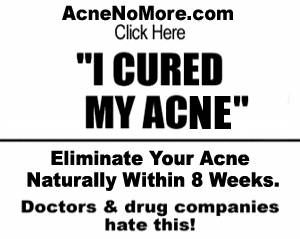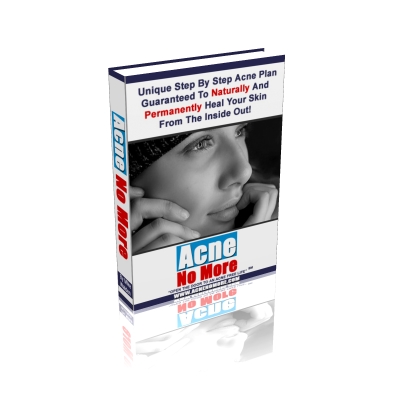Fortunately, numerous over-the-counter (OTC) medications are available to help individuals combat acne. The effectiveness of these treatments depends on three crucial factors: the active ingredients in the product, the cause of the acne, and the individual's skin type.
Visit; Natural Acne Treatments: Effective Solutions for Clear Skin
Understanding Different Acne Products
Not all acne products work the same way due to variations in their ingredients. For instance, salicylic acid, an active ingredient, reduces the accumulation of dead skin cells, while benzoyl peroxide tackles the naturally occurring P.acnes bacteria in the skin.
Let's take a closer look at some of the commonly used active ingredients found in most over-the-counter acne medications:
Benzoyl Peroxide
Benzoyl peroxide is considered a "wonder drug" in the acne treatment industry. It combats acne by reducing the population of P.acnes bacteria and minimizing the accumulation of dead skin cells. By targeting these two factors, benzoyl peroxide effectively mitigates the development of comedones, which are large, deep, pus-filled pimples commonly associated with acne. The efficacy of benzoyl peroxide has been well-established over the years, making it a preferred choice for treating mild acne.
While you may come across personal recommendations and success stories related to benzoyl peroxide on the internet, it is important to follow the instructions on the product label or consult a physician when using an acne product containing this ingredient. Overuse of benzoyl peroxide can lead to dryness of the skin and may cause discoloration of fabrics or materials that come into contact with it, such as shirts, towels, and sheets. Benzoyl peroxide is available in the form of lotions or gels and can be used as a preventative acne treatment even after the acne has cleared up.
Alcohol and Acetone
Some over-the-counter acne medications utilize a combination of alcohol and acetone. Alcohol helps eliminate external bacteria, while acetone reduces oiliness in the skin.
"Herbal," "Organic," and "Natural" Products
There are OTC products labeled as "herbal," "organic," or "natural." These products primarily cater to individuals who prefer such labels. However, their effectiveness in treating acne has yielded inconclusive results, and the benefits remain uncertain.
Resorcinol
Resorcinol, another active ingredient, is particularly effective in treating small acne blemishes. It is often combined with sulfur in certain OTC products.
Sulfur
Sulfur has been utilized in OTC medications for acne for several decades. It is commonly found in combination with other active ingredients like alcohol, salicylic acid, and resorcinol. While sulfur has proven to be effective for some individuals, the exact mechanism by which it clears up acne is still not fully understood. It is worth noting that sulfur-based products tend to have an unpleasant odor.
Salicylic Acid
Salicylic acid is generally effective for treating acne blemishes without inflammation. Its primary action involves unclogging pores to reduce the formation of acne blemishes by minimizing the buildup of dead skin cells. Salicylic acid does not impact sebum production or the presence of P.acnes bacteria. Similar to products containing benzoyl peroxide, those containing salicylic acid as the active ingredient should be continued even after the acne has cleared to prevent its recurrence. Some individuals may experience skin irritation as a possible side effect of salicylic acid.
Tailoring Treatment to Individual Skin Types
It is essential to recognize that everyone's skin is unique. Some individuals have predominantly dry skin, while others have oily skin, and most people have a combination of both in different areas of their bodies. Gel-based acne products are more suitable for oily skin, while cream-based products are better for dry skin.
Individuals with sensitive skin should avoid using strong acne medications as they may cause skin irritation or potentially worsen the acne condition.
Mild acne treatments can be used as preventive measures, while stronger treatments like those containing benzoyl peroxide and salicylic acid are recommended for post-acne prevention. However, it is important to note that some strong treatments can be too harsh and may irritate the skin.
When to Seek Professional Help
If you have anything more than a mild and manageable case of acne, over-the-counter medicines may help control it and eventually eliminate it. However, if your acne appears to be uncontrollable, painful, or causing significant distress, it is advisable to consult a dermatologist for specialized care.
In conclusion, a wide range of over-the-counter acne treatments is available to assist individuals in managing their acne concerns. The effectiveness of these treatments depends on various factors, including the active ingredients, the underlying cause of the acne, and an individual's specific skin type. By understanding these factors and tailoring the treatment accordingly, individuals can find effective solutions to address their acne and achieve clearer, healthier skin.
Visit NoMoreAcne.com, the ultimate destination for effective solutions to clear skin. Discover the power of natural acne treatments and bid farewell to stubborn acne forever. With our comprehensive information and resources, you'll unlock the secrets to achieving a blemish-free complexion. Say goodbye to intrusive chemicals and embrace the wonders of nature in your fight against acne. Don't wait any longer; click here to access Natural Acne Treatments: Effective Solutions for Clear Skin. Take control of your skin today and experience the confidence of a radiant, acne-free you!



















0 Comments